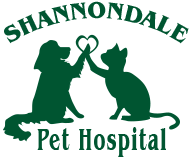Educational Articles
-
Pentosan polysulfate sodium is an injectable disease-modifying osteoarthritis drug (DMOAD) used to treat non-infectious and traumatic arthritis in dogs. It is also used off-label in cats. Follow your veterinarian’s instructions on how to administer the injection and dispose of the needle and syringe appropriately. Side effects are rare when given according to label recommendations and at prescribed intervals. Do not use in pets with a known hypersensitivity to it, in pets with known or suspected bleeding disorders or immune-mediated arthritis, or in pets with severe kidney or liver disorders.
-
Pentoxifylline is given by mouth and is used off label to treat skin disorders and poor perfusion due to inflamed blood vessels. Give as directed. Common side effects include vomiting, diarrhea, lack of appetite, excitement, or restlessness. Do not use in pets that are allergic to it, allergic to xanthines, or in pets with bleeding in the brain or eye. If a negative reaction occurs, please call your veterinary office.
-
Pericardial effusion refers to the abnormal accumulation of fluid in the sac surrounding the heart. Pericardial effusion can have a number of underlying causes, including inflammation, infection, cancer, and hereditary defects. Mild cases of pericardial effusion may be asymptomatic, but more significant fluid accumulations can interfere with the heart’s function and lead to severe effects such as sudden death. Treatment and prognosis is dependent upon the underlying cause of the condition.
-
A perineal hernia is a protrusion of tissue through the muscle of the perineum. Potential causes, clinical signs, and treatment are explained. The prognosis ranges from good to poor, depending on the ability to perform surgery and the pet's response to surgery. Perineal hernias have the potential to be life-threatening.
-
A perineal urethrostomy (PU) is a surgical procedure that is most commonly performed on male cats with a urinary obstruction. Male cats develop urinary obstructions much more readily than female cats, due to differences in urinary tract anatomy between the two sexes. A PU creates a new urinary opening that decreases the length of the urethra and allows urine to bypass this narrowed region. Less commonly, PU may also be done in cats with severe urethral trauma. After surgery, your cat will be required to wear an Elizabethan collar (e-collar) to prevent self-trauma to the surgical site.
-
Perna is given by mouth and is used over the counter to treat inflammatory conditions such as arthritis in cats, dogs, and horses. Give as directed by your veterinarian. The most common side effects are gastrointestinal effects such as nausea and diarrhea. Do not use in pets that are allergic to it or other shellfish, or in pregnant or nursing pets. If a negative reaction occurs, please call your veterinary office.
-
A persistent tooth is a deciduous (baby) tooth that is still present when the permanent tooth erupts. When this happens, the baby tooth occupies the place in the mouth that is meant for the permanent tooth, forcing the permanent tooth to erupt at an abnormal angle or in an abnormal position. The result is crowding or malposition of the tooth, causing an abnormal bite (malocclusion). Early extraction is advised.
-
Human personal care products are usually not meant for pets. Commonly used human shampoos, conditioners, medical ointments, and even toothpaste can cause uncomfortable side effects for our pets. Some ingredients in human care products may be toxic. It’s best to gather information about what to share and what not to share with your pet. When in doubt, consult your veterinarian.
-
Pet health insurance policies are primarily designed to cover accidents and illnesses. Pet insurance policies do not cover pre-existing conditions, and some have bilateral exclusions, meaning for example, if one knee has required ligament surgery, the other knee is automatically excluded for the same condition. Synthesized information about coverage and exclusions can be found on aggregator sites, such as PetInsuranceInfo (petinsuranceinfo.com). The factors that affect premiums include age, species, breed, the region you live, deductible amounts, co-insurance, and in some cases annual payout limits. Generally, it is less expensive to insure your pet when it is young and healthy, rather than waiting until it is older and more prone to illness. Educate yourself to understand the terms and conditions of the pet insurance you buy for your pet.
-
Monitoring your pet is important to his health. This handout discusses the use of trackers and apps to monitor your dog's activity level and overall mental and physical health.


